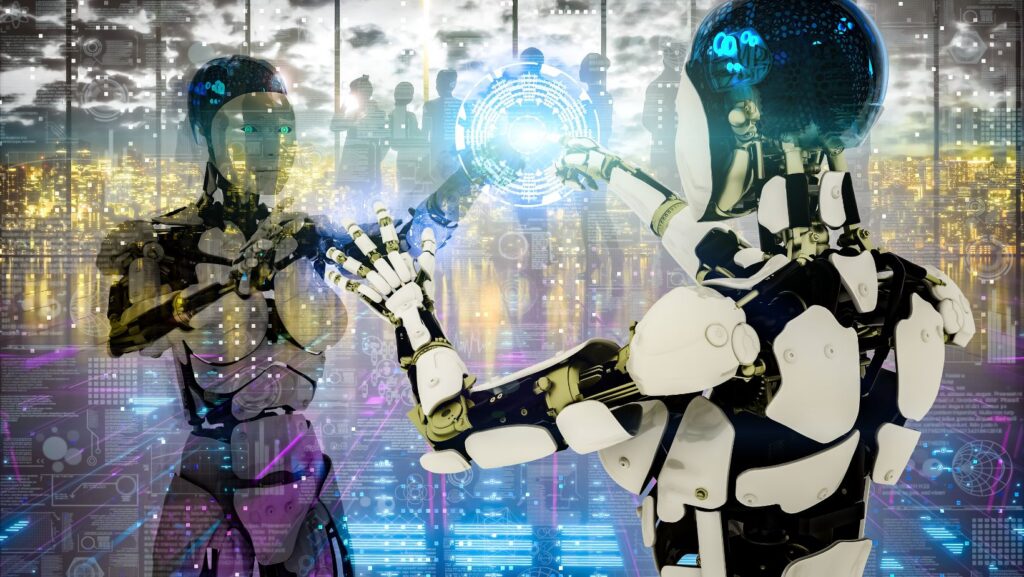Artificial Intelligence in the Workplace
As someone who has witnessed the transformative power of artificial intelligence in the workplace, I can attest to the profound impact it has had on productivity and efficiency. From streamlining routine tasks to enhancing decision-making processes, AI is revolutionizing how we work. In this article, I’ll delve into the ways in which AI is reshaping the modern workplace landscape and explore the potential benefits and challenges it brings.
With AI technologies becoming increasingly integrated into various industries, it’s crucial for professionals to adapt and embrace this new era of automation. From chatbots handling customer inquiries to predictive analytics optimizing business strategies, the possibilities are endless. Join me as we navigate through the dynamic world of artificial intelligence in the workplace and uncover the strategies for leveraging its full potential.
Importance of Artificial Intelligence in the Workplace
Enhancing Efficiency
Artificial intelligence automates repetitive tasks to boost productivity. It accelerates processes and reduces errors.
Improving Decision Making
AI analyzes massive datasets swiftly to provide insights for data-driven decisions. It enhances accuracy and removes biases.

Implementation of Artificial Intelligence
Data Integration
When implementing artificial intelligence in the workplace, Data Integration plays a crucial role. It involves consolidating data from various sources into a unified format for AI systems to analyze and derive valuable insights.
Training and Development
Training and Development are essential components of AI implementation. Employees need to be trained on how to interact with AI technology effectively, ensuring seamless integration into daily workflows. Continuous learning and skill development are vital to maximize the benefits of AI in the workplace.
AI implementation requires a strategic approach to harness its full potential and drive organizational growth.
Challenges of Adopting Artificial Intelligence in the Workplace
Resistance to Change
Implementing artificial intelligence in the workplace often faces challenges due to employee resistance to new technologies, changes in workflows, and fear of job displacement.
Data Security Concerns
Data security is a paramount issue when adopting AI, as sensitive company information becomes vulnerable to breaches and cyber attacks without proper safeguards in place.

Future of Artificial Intelligence in the Workplace
As technology advances, the future of Artificial Intelligence (AI) in the workplace is filled with exciting possibilities. Companies are increasingly integrating AI solutions to streamline operations, boost productivity, and enhance decision-making processes. AI is projected to create new job opportunities while transforming existing roles. With automation becoming more prevalent, employees will need to adapt by gaining new skills to remain competitive in the workforce.
In the coming years, AI is expected to revolutionize industries, offering innovative solutions to complex problems. From predictive analytics to personalized customer experiences, AI is poised to drive significant advancements in various sectors. As companies embrace AI, they must prioritize data security measures to protect sensitive information from potential cyber threats. Implementing robust cybersecurity protocols will be crucial in safeguarding digital assets and maintaining trust in AI technologies.
Adopting a proactive approach to AI implementation will be essential for companies to stay ahead in a rapidly evolving digital landscape. By fostering a culture of innovation and continuous learning, organizations can harness the full potential of AI technologies. As AI becomes more mainstream, businesses that embrace change and invest in their employees’ development will thrive in an era of technological transformation.
Embracing Artificial Intelligence in the workplace is not just a trend; it’s a necessity for staying competitive in today’s fast-paced business environment. As industries evolve, so must our approach to technology integration. By fostering a culture of innovation and continuous learning, organizations can harness the full potential of AI to drive efficiency, productivity, and growth. Prioritizing data security and upskilling employees are crucial steps towards successful AI implementation. The future of work is being shaped by AI, and those who adapt and embrace change will be at the forefront of innovation. Let’s seize the opportunities AI presents and pave the way for a smarter, more efficient workforce.

